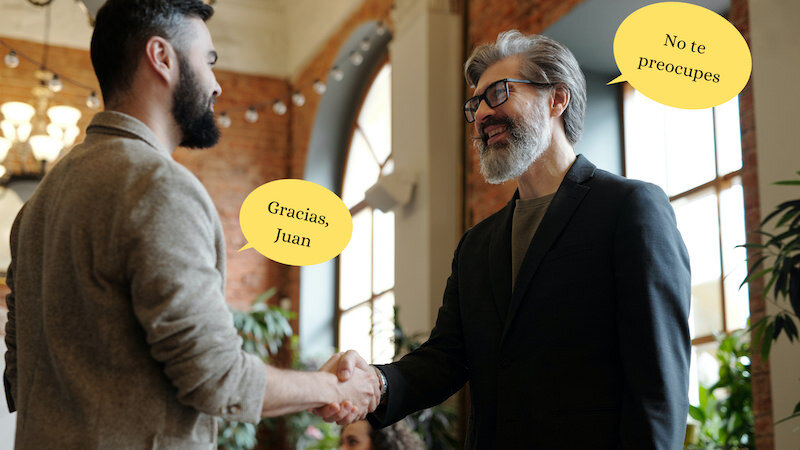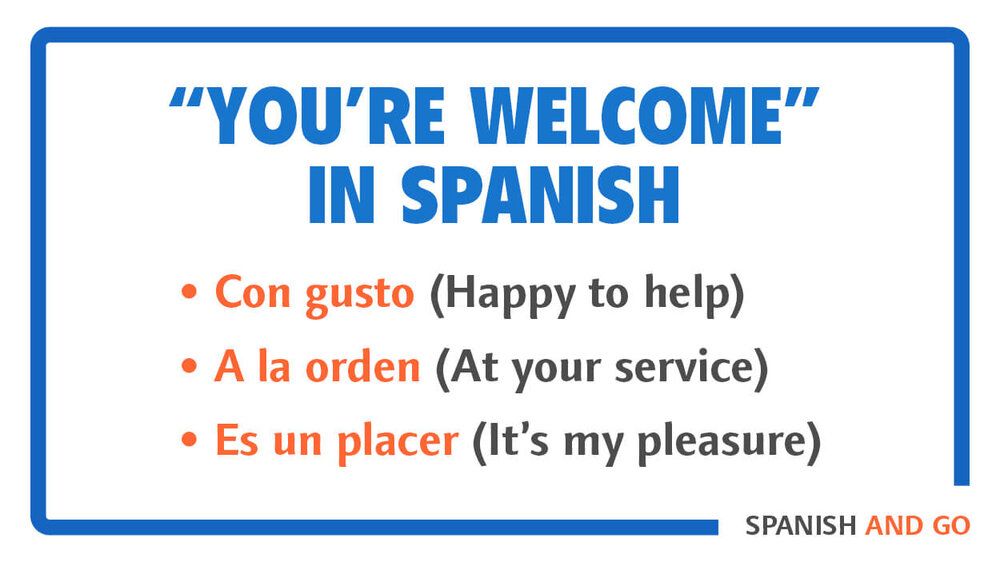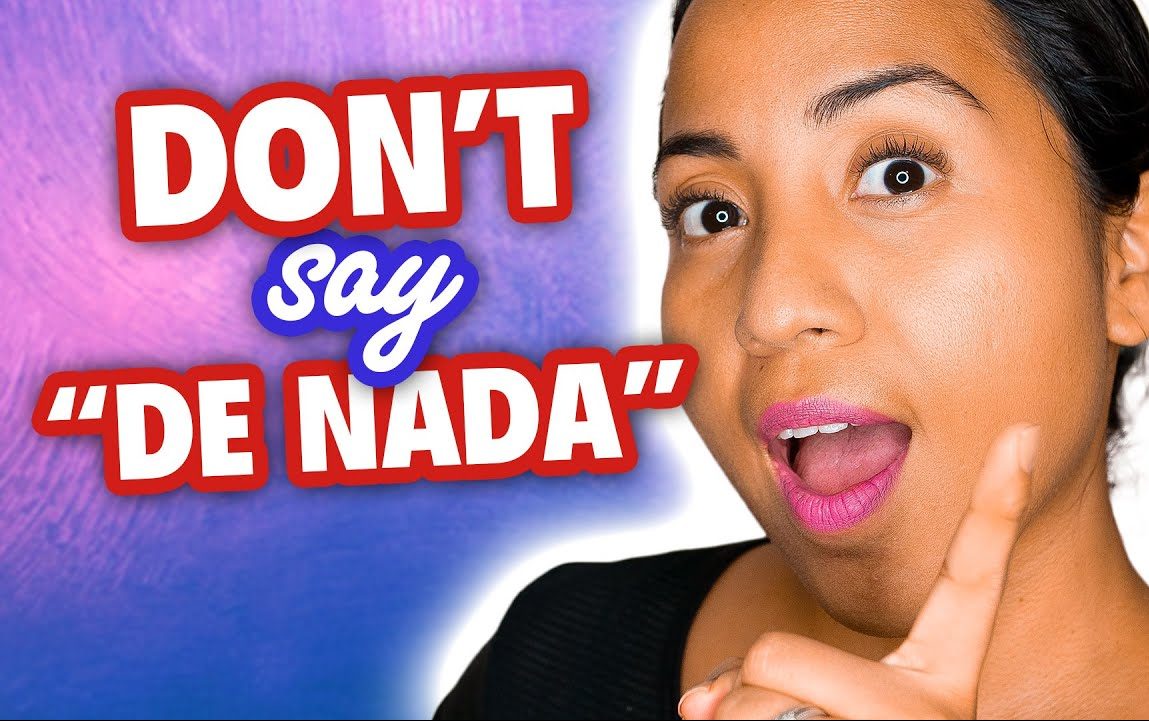Don’t Say “De Nada” [15 Ways to Say You’re Welcome in Spanish]
Got your attention? Great! To be perfectly clear, there’s nothing wrong with saying de nada in most situations. You can use it with your friends or with your boss, regardless if you are in a formal or informal setting. That’s why it is such a common phrase to use when you want to say “you’re welcome;” but there are so many other phrases you can hear or you can use – why would you just want to limit yourself to one? In this article we’ll cover 15 different ways to say “you’re welcome” in Spanish.
Download the De Nada Alternatives PDF Here
Get the PDF and many other tools to start speaking and traveling even faster.
No spam, ever. Only the good stuff.
#1. No es nada – It’s nothing, or it’s not a big deal
This is a very casual way of saying you’re welcome. When someone helps you with something and then you say “Oh, gracias”, the other person can say “no es nada”.
2. Está bien – It’s all good
This is also very casual. When one says “muchas gracias por tu ayuda”, you can respond with “oh, está bien”.
3. No hay problema – It’s no problem
This is a very easy and simple way of saying you’re welcome in Spanish.
4. No te preocupes (informal) – No worries
You can also say no se preocupe, for a more formal setting which means “no worries” or “don’t worry”.

5. No hay de que / No hay de que preocuparse – There’s nothing to worry about
This one is very similar to number four. It also has that relaxed vibe to it.
6. No tienes nada que agradecer – Think nothing of it
You don’t hear this a lot in Mexico. It’s not a very common phrase, but it’s good to know just in case you do come across it. This is more used by older people or someone, maybe in a little bit more of a formal setting.
7. ¿Qué agradeces? – What are you thanking me for?
It’s interesting because it’s kind of like a question but it’s said like a statement. It’s like “what are you thanking me for; it’s something so small I already forgot about it. It’s no big deal”.
8. Gracias a ti / A ti – Thank you
This phrase is very basic but very useful. It means “you’re welcome and thank you”.

9. Con gusto – Happy to help
This literally translates to “with pleasure.” It’s a really friendly way of answering “thank you.”
10. Para eso estamos – That’s what we’re here for
This phrase is usually used by someone who has an obligation towards you, like your parents.
If you are talking to your friends you can say this phrase instead, “para eso estamos los amigos”, which means, “that’s what friends are for”.
11. A la orden – At your service
This one you’ll hear a lot more in a service industry or someone who has an obligation to help you.
12. Es un placer – It’s my pleasure
This is also commonly used in the service industry.

13. Estamos para servirte (informal) – We’re here to serve you
The formal way of saying this is “estamos para servirle.” Can also be said, “para servirte (informal) or para servirle (formal),” and means “we’re here to serve you” or simply, “at your service.” These are phrases that you will likely hear in a service industry like a hotel or restaurant.
14. Hoy por ti, mañana por mí – Today for you, tomorrow for me
This roughly translates to “scratch my back, I’ll scratch yours,” which means that you are both taking care of each other. This is not usually used in casual conversations, but may be heard on a TV show or read in a book.
15. Gracias, las que te adornan – Grace is what’s adorning you
This is a flirty way of responding to “gracias,” but does not literally mean “welcome.” It’s more of complimenting someone of his or her physical appearance.
Get Out and Practice!
Use these phrases the next time you travel to Spanish-speaking countries or make a conversation with someone in Spanish – and make an impression on more than just de nada.
Looking for more real-world lessons? Check out our “how-to” playlist where we show you how to use your Spanish in real-life situations.


Related Posts
How to Use “Speech Shadowing” for Perfect Spanish Pronunciation
5 Ways to Get Your Spanish Practice in….and Make Friends While Doing it (or best ways to practice spanish everyday)
5 Tips to Achieve Spanish Fluency You Can Start Using TODAY